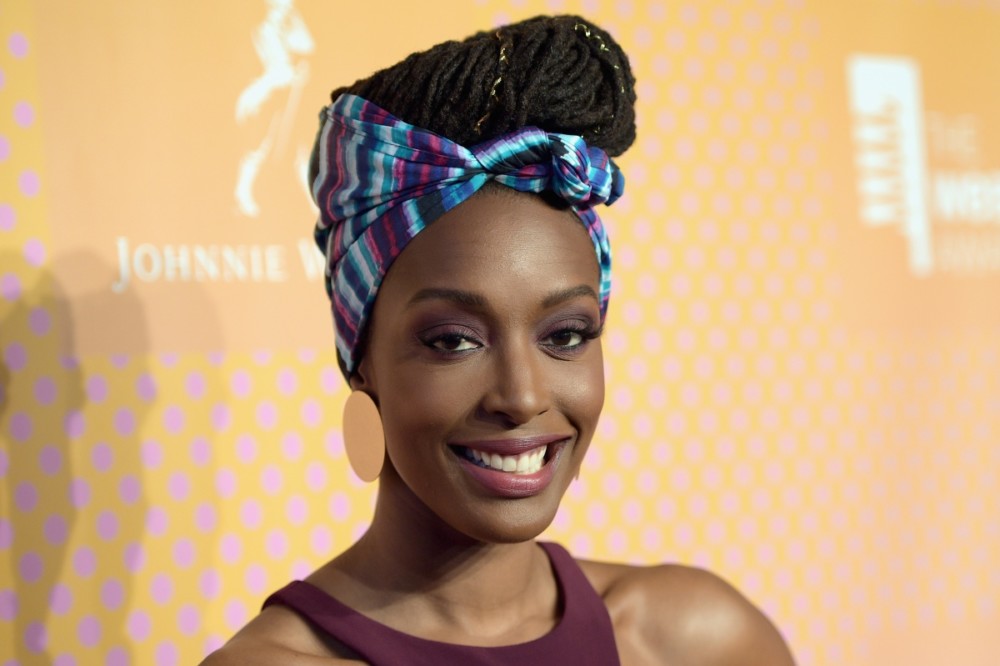By Ngozi Ekeledo
Chicago Tribune
WWR Article Summary (tl;dr) Franchesca Ramsey’s new book, “Well, That Escalated Quickly: Memoirs and Mistakes of an Accidental Activist” is a collection of essays which serve as a humorous instruction manual on how to handle social media snafus.
Chicago Tribune
Franchesca Ramsey is very familiar with “internet trolls.”
The comedian, actress and writer used to “feed” her fair share of them following the viral success of her 2012 YouTube video “Sh(ASTERISK)t White Girls Say … to Black Girls” (which racked up over 12 million views and helped Ramsey land interviews with Anderson Cooper, NPR and BBC, among others).
With the video’s success, Ramsey went from a graphic design job at Ann Taylor to becoming a mouthpiece for the woke crowd as the host of MTV’s “Decoded” and a former writer for “The Nightly Show With Larry Wilmore” on Comedy Central.
But Ramsey’s newly minted life in the public eye (especially on the internet) wasn’t without complications.
Her experience as an “online media presence” navigating a new frontier of social media activism inspired her new book, “Well, That Escalated Quickly: Memoirs and Mistakes of an Accidental Activist,” released May 22. The collection of essays serves as a humorous instruction manual on how to handle social media snafus and conversations in the current climate of online contention.
Ahead of her Chicago book-tour stop, the Chicago Tribune talked with the first-time author about her book and how she handles social media’s pitfalls.
The following conversation has been edited for space and clarity.
Q: What made you want to write this book?
A: We’re in a time, especially because of the internet, where conversations can really escalate in a way that feels impossible to resolve, and I’ve been on both sides of that. I felt like a book was a great place to really dive into that in a way that you just can’t dive into it on YouTube or on Twitter. I wanted to use the book as an opportunity to encourage people to be transparent about their mistakes, so that they can hopefully help other people do the same.
Q: You call yourself an “accidental activist.” How did that phrase originate?
A: (“Sh(ASTERISK)t White Girls Say … to Black Girls”) really catapulted me to this place where people were asking me, and sometimes demanding, that I talk about racial inequality, oppression and racism, and at the time, I genuinely didn’t have the language or the capabilities to do that in a thoughtful way. So I used the term “accidental activist” to say that I stumbled into this conversation; I had personal experience, and I had a talent for talking about things in a comedic way, but it wasn’t something that I signed up for.
Even though my story is specific to the fact that I went viral, that’s something that a lot of people deal with in their personal lives, at work and in their relationships, where suddenly people are asking them to speak on certain issues or they feel compelled to speak up on certain issues. They might not feel so confident doing so or completely prepared, but something in them encourages them to move forward because the issues are important to them.
Q: Why did you choose to use humor as a lens for your more serious essays about race, gender and injustice in this book?
A: When you’re talking about these issues, tensions get high, and it’s easy for people to get defensive or feel as if they are being misrepresented, or worse, attacked. Humor can be a great way to defuse the situation and make people more comfortable.
I love using pop culture references. I’m very self-deprecating, so I’m not afraid to make jokes at my own expense, and I’ve just found that makes people a little more comfortable and can open the door for people to feel a little bit more understanding and accepting of where you’re coming from.
Q: You talk honestly about dealing with online trolls and reveal that you, at one time, were an “online hater” yourself. Why did you want to include that experience?
A: Social media, unfortunately, just makes it a lot easier to be jealous. It sets up false expectations of reality, so it’s really easy to look at someone else’s life online and assume that they have everything going great for them and that their life is perfect. Especially if you’re not happy in your offline life, going online and participating in (troll) behavior is going to make you feel worse. I know it’s something that lots of people do because every single time that I talk about it, people are embarrassed to admit that they can relate.
Q: Social media can get pretty toxic at times. What’s your form of self-care when dealing with it all?
A: Logging off. I was finding myself just online all of the time, and it was making it difficult to enjoy my real life, either because of stress or just because I was capturing moments for the internet instead of actually living in the moment. I don’t think there’s anything wrong with stepping away and taking time for yourself and doing something that makes you feel good or rejuvenated instead.
Q: Have you found that social media has influenced or shaped who you are offline?
A: The internet is part of my job, so I have to approach it with a level of professionalism. I don’t necessarily think it’s changed who I am, but if anything, it’s impacted the opportunities that have come into my life and the people that I’ve been able to develop relationships with _ which I’m very fortunate and thankful for.














































































































































































































































































































































































